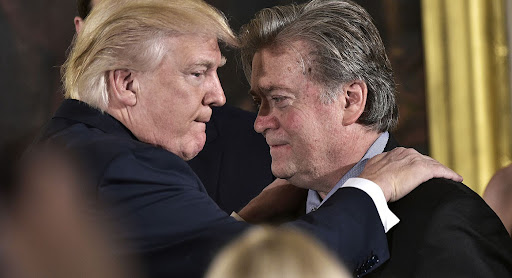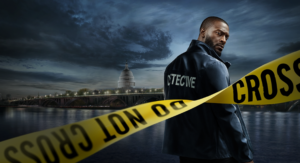Steve Bannon and the Limits of Executive Privilege

Image Courtesy of Mandel Ngan/Getty Images
By Christian Rubio
On Friday, October 14, the Congressional select committee on the January 6th riot decided to refer Steve Bannon for criminal contempt for his refusal to cooperate with their investigation. On Tuesday, October 19, they voted unanimously in favor of the referral. Bannon was subpoenaed to appear before the committee on Thursday, but in a letter to the committee obtained by ABC, his lawyer, Robert J. Costello, cited executive privilege for his refusal to cooperate.
“Mr. Bannon’s position is not in defiance of your Committee’s subpoena; rather, Mr. Bannon noted that President Trump’s counsel stated that they were invoking executive and other privileges and therefore directed us not to produce documents or give testimony that might reveal information President Trump’s counsel seeks to legally protect,” read part of the letter.
The committee has a 7-2 Democratic majority and the two Republicans, Rep. Liz Cheney of Wyoming and Rep. Adam Kinzinger of Illinois, are harsh Trump critics who voted to impeach him for his role in the January 6 riot, and so passage through the committee was never in doubt. It will also likely pass in the Democratic majority House.
After this, whether to actually prosecute it is up to the Justice Department. DOJ spokesman Anthony Coley said that “the Department of Justice will make its own independent decisions in all prosecutions based solely on the facts and the law. Period. Full stop.”
It seems like a no-brainer that President Biden’s Justice Department would choose to prosecute; however, as The Dispatch explains, the president’s government lawyers have more of a “duty toward protecting as much power for the office of presidency itself.” So the duty of these lawyers is not necessarily to Biden himself, but to the office he holds.
The claim of executive privilege on the part of Bannon and his lawyers raises the obvious question of whether a former president can claim executive privilege. In a 2009 article for the Texas Law Review, Laurent Sacharoff from the University of Arkansas argues that it defies the Constitution.
“For a President to enjoy any constitutional powers after he leaves office violates the bedrock premises of the Constitution and its turn away from monarchy,” he says.
Comparing executive privilege to attorney-client privilege, he says, “In particular, an individual client may assert the attorney-client privilege purely in self-interest, even to cover up past crimes, whereas a President may only assert executive privilege in the public interest and never in self-interest—especially not to cover up crimes.”
In a more recent interview for Harvard Law Today that was specifically about the January 6 situation, former White House Counsel and Harvard Law lecturer Neil Eggleston similarly argued that a former president cannot exercise this privilege.
“If there is a request for what would otherwise be privileged material regarding a prior presidency, representatives of the prior president are supposed to consult with representatives of the current president, and then the current president decides,” Eggleston said. Later on he says that “the authority attaches to the office, not the human.”
The January 6 Commission is determined to acquire all of the information that it seeks and reassert the power of Congressional subpoenas. The committee’s investigation will certainly drag on for months to come, so the answers that it seeks are far away.







